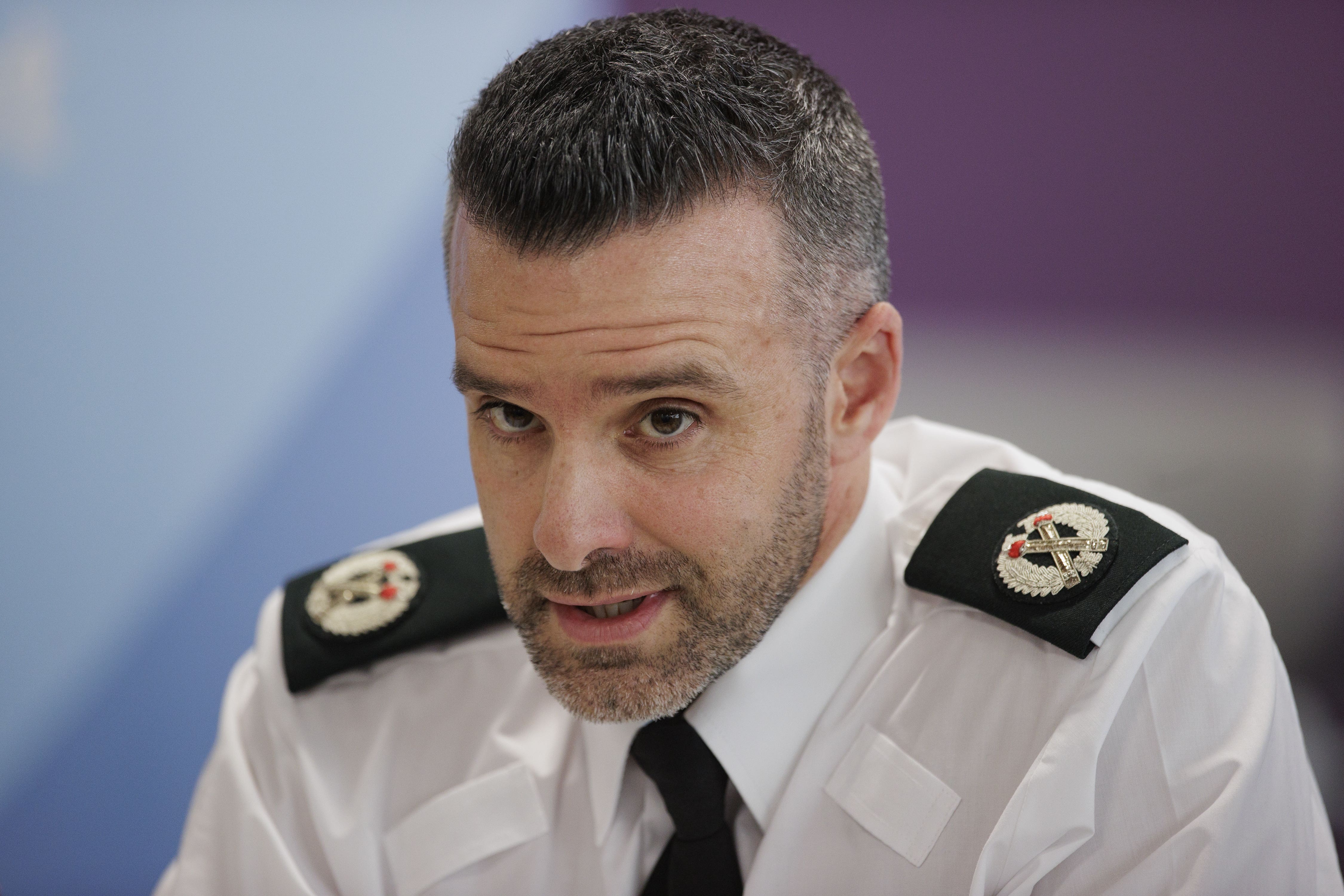Police ‘frustrated more could not be done’ to stop damage during Belfast riots
The PSNI had also been criticised for how they handled the unfolding disorder, with officers accused of watching on as shops and cafes burned.

There is frustration among police that damage done to ethnic minority businesses during recent disorder in Belfast was not prevented, a senior PSNI officer has said.
Around 20 officers were injured and 49 arrests have been made, including nine young people, linked to serious disorder in Belfast after an anti-immigration protest in early August.
The unrest and attacks on some businesses owned by people from minority ethnic backgrounds came after misinformation on social media following the murder of three young children in Southport, England.
The PSNI had also been criticised for how they handled the unfolding disorder, with officers accused of watching on as shops and cafes burned.
Appearing before the Executive Office committee on Wednesday, Assistant Chief Constable Bobby Singleton said that police commanders were “frustrated that they couldn’t do more” to prevent damage to businesses during disorder on Belfast’s streets in August.
He said he understands concerns around police tactics and that commanders “have some reflection on that themselves about how they think it could be done better”.
Mr Singleton said it was not clear how many would attend the gathering at City Hall on August 3, as it originated from an online post.
He added that the only other venue they knew would be “in the minds” of the demonstrators that day was the Belfast Islamic Centre.
“One of the great things about Belfast, and south Belfast in particular, is just how rich a community it is and how diverse it is,” he told MLAs.
“Unfortunately, in those circumstances, it meant that when the parade began to break up and move in different directions away from the block into side streets, there were no shortage of premises that they could have attacked and we did see some opportunist action.”
Mr Singleton said that racially motivated hate crime is a “growing issue” in Northern Ireland communities, calling such offences “abhorrent”.
Mr Singleton was asked about the erection of anti-Muslim posters on lampposts in the Rathcoole estate in Newtownabbey last month.
He had said previously it was “unacceptable” that the posters had been allowed to stay on the lampposts for around seven weeks when he would have anticipated a response from the Department for Infrastructure (DfI) to remove them within “hours” of them going up.
He said police eventually took them down as they had “been up for far too long in the first place, and we understand and appreciate the impact that it was having on the community”.
He said there was “willingness” from both the minister and the DfI to “work as a collective” to provide the most “effective and timely” response to such issues.
Bookmark popover
Removed from bookmarks